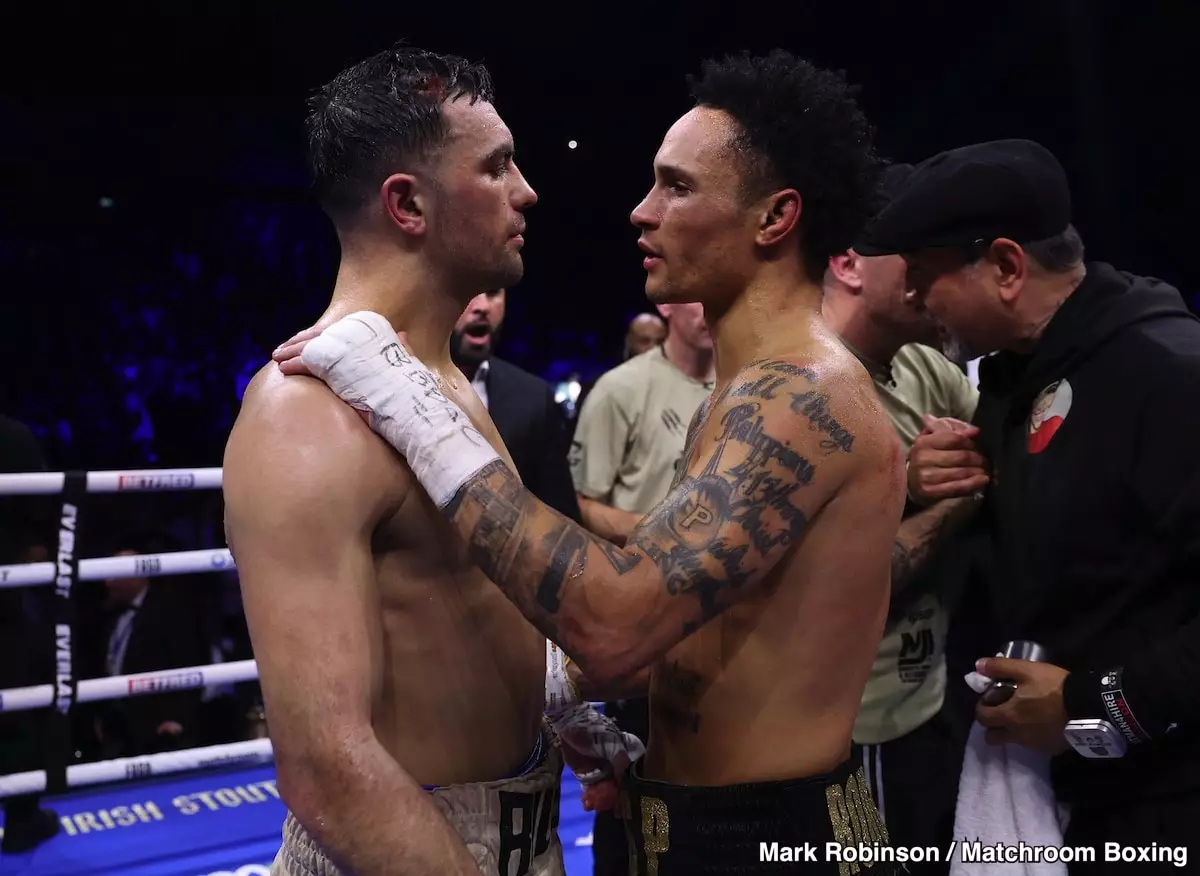Boxing is a sport that thrives on excitement — the electrifying punches, the rapid footwork, and the unyielding will of the fighters. However, when discussing the British boxer Jack Catterall, many observers have noted a stylistic clash between his cautious approach and the more aggressive expectations of American fight fans. Chris Algieri, a former world champion and insightful analyst, articulates concerns regarding Catterall’s ability to win over American judges and fans based on his current fighting style.
Catterall boasts an impressive professional record of 30 wins, including 13 by knockout, and only one loss. Yet, despite his statistics, Algieri firmly believes that Catterall’s safety-first strategy will be a liability when he steps outside of the UK. This cautious approach often sees him retreating rather than engaging, which might secure him victories in the UK but may not translate well in the U.S. judging criteria where aggressiveness is often favored.
Drawing a parallel between Catterall and fighters like Shakur Stevenson, Algieri highlights that exceptions to the rule are scarce. Stevenson, while known for his defensive grappling skills, has backed up his style with a decorated amateur background and a promotional powerhouse like Top Rank. In contrast, Catterall lacks similar accolades and frequently appears less compelling in the ring. His tendency to engage minimally with opponents may not earn him respect or favor from American audiences who appreciate heart-pounding action over light footwork.
Limited Engagement: A Barrier to Success
Algieri’s sentiment is echoed when examining Catterall’s career trajectory. Though he has secured wins against former champions like Josh Taylor and Regis Prograis, the overall quality of these victories remains questionable. These opponents, while somewhat notable, have experienced their decline. Catterall’s management has strategically avoided matchups with formidable contenders in the light welterweight division, such as Devin Haney or Ryan Garcia. This prudent matchmaking may afford Catterall short-term success, but it undercuts the potential for long-term growth and exposure on the international stage.
The key to triumph in boxing lies not only in winning but winning convincingly. The concern is that while he might garner decisions back home, his fighting style may alienate fans and stop the judges from awarding him close-call victories on foreign soil. Algieri emphasizes, “I don’t see Catterall winning fights in America,” pointing to his pattern of backing away from combat even when opportunities present themselves.
Matchroom promoter Eddie Hearn is aware of these dynamics and plans to leverage Catterall’s next moves strategically. Potential fights with other contenders like Liam Paro could provide a more leveled playing field as both fighters are yet to gain widespread popularity; however, this doesn’t negate Catterall’s difficult path ahead. Hearn’s willingness to throw financial incentives at rising stars reflects a calculated attempt to create viable matchups, but these efforts are rife with challenges.
Catterall’s best opportunities might arise within the UK, where his boxing style resonates more with local audiences. But, as Algieri makes clear, sticking to the UK could limit his growth. “They understand boxing and moving. They appreciate the sweet science way more than we do over here,” he says, implying that Catterall’s style could be received more favorably within domestic confines.
As Catterall progresses in his career, the intersection of style and audience expectations will become increasingly significant. If he is keen on establishing a global identity in boxing, the onus rests upon him to adapt his fighting habits or face the reality of being pigeonholed as a less entertaining fighter. His potential for success is not inescapable; he has time to evolve. But as Algieri warns, Catterall must decisively engage his opponents, especially as he eyes future matchups that may demand more aggressiveness to satisfy both critics and judges alike.
In the end, Jack Catterall’s journey shows that success in boxing transcends records alone; it is about captivating audiences and leaving them longing for more. The onus will ultimately rest on him to transcend a style that, while effective in certain arenas, may lead to stagnation if not thoughtfully reimagined.

